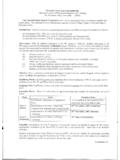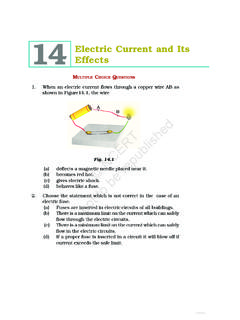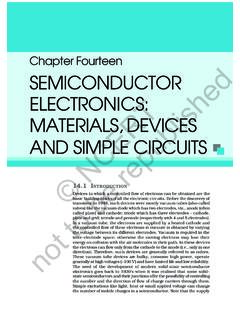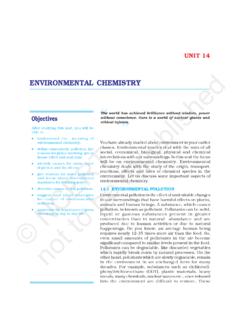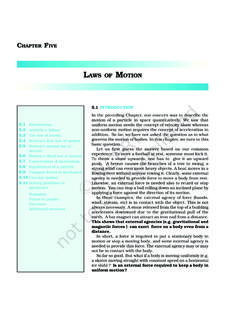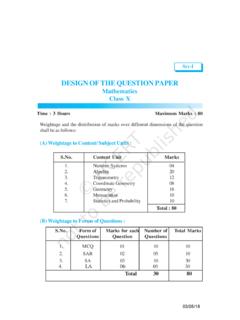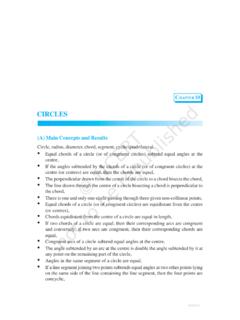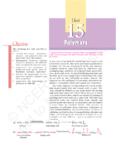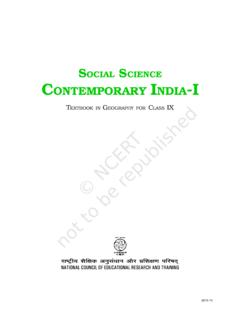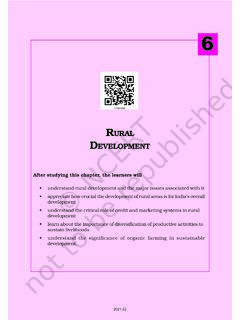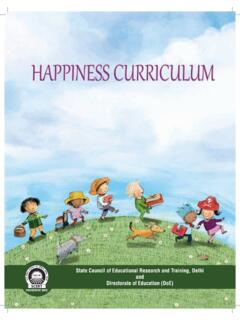Transcription of INDIAN ECONOMIC DEVELOPMENT - NCERT
1 INDIAN ECONOMIC DEVELOPMENTTEXTBOOK FOR CLASS XI2021-22 First EditionFebruary 2006 Phalguna 1927 ReprintedOctober 2006 Kartika 1928 December 2007 Pausha 1929 December 2008 Pausha 1930 January 2010 Pausha 1931 January 2011 Pausha 1932 March 2012 Phalguna 1933 January 2013 Pausha 1934 January 2014 Pausha 1935 December 2014 Pausha 1936 February 2016 Magha 1937 January 2017 Magha 1938 January 2018 Magha 1939 February 2019 Magha 1940 December 2019 Pausha 1941 February 2021 Phalguna 1942PD 28T RSP National Council of EducationalResearch and Training, 2006````` ?
2 ?.00 Printed on 80 GSM paper withNCERT watermarkPublished at the Publication Divisionby the Secretary, National Council ofEducational Research and Training,Sri Aurobindo Marg, New Delhi 110 016and printed atISBN 81-7450-551-2 ALL RIGHTS RESERVED No part of this publication may be reproduced, stored in a retrievalsystem or transmitted, in any form or by any means, electronic,mechanical, photocopying, recording or otherwise without the priorpermission of the publisher. This book is sold subject to the condition that it shall not, by way oftrade, be lent, re-sold, hired out or otherwise disposed of withoutthe publisher s consent, in any form of binding or cover other thanthat in which it is published.
3 The correct price of this publication is the price printed on thispage, Any revised price indicated by a rubber stamp or by a stickeror by any other means is incorrect and should be TeamHead, Publication:Anup Kumar RajputDivisionChief Editor:Shveta UppalChief Production:Arun ChitkaraOfficerChief Business:Vipin DewanManager (Incharge)Assistant Editor:Ram NiwasBharadwajProduction Assistant :Prakash Veer SinghCover and IllustrationsSarita Verma MathurOFFICES OF THE PUBLICATIONDIVISION, NCERTNCERT CampusSri Aurobindo MargNew Delhi 110 016 Phone : 011-26562708108, 100 Feet RoadHosdakere Halli ExtensionBanashankari III StageBengaluru 560 085 Phone : 080-26725740 Navjivan Trust 380 014 Phone : 079-27541446 CWC CampusOpp.
4 Dhankal Bus StopPanihatiKolkata 700 114 Phone : 033-25530454 CWC ComplexMaligaonGuwahati 781 021 Phone : 0361-26748692021-22 FOREWORDThe National Curriculum Framework (NCF) 2005, recommends thatchildren s life at school must be linked to their life outside the principle marks a departure from the legacy of bookish learningwhich continues to shape our system and causes a gap between theschool, home and community. The syllabi and textbooks developed onthe basis of NCF signify an attempt to implement this basic idea. Theyalso attempt to discourage rote learning and the maintenance of sharpboundaries between different subject areas.
5 We hope these measureswill take us significantly further in the direction of a child-centred systemof education outlined in the National Policy on Education (1986).The success of this effort depends on the steps that school principalsand teachers will take to encourage children to reflect on their ownlearning and to pursue imaginative activities and questions. We mustrecognise that, given space, time and freedom, children generate newknowledge by engaging with the information passed on to them by eating the prescribed textbook as the sole basis of examination is oneof the key reasons why other resources and sites of learning are creativity and initiative is possible if we perceive and treatchildren as participants in learning, not as receivers of a fixed body aims imply considerable change in school routines and modeof functioning.
6 Flexibility in the daily time-table is as necessary as rigourin implementing the annual calendar so that the required number ofteaching days are actually devoted to teaching. The methods used forteaching and evaluation will also determine how effective this textbookproves for making children s life at school a happy experience, ratherthan a source of stress or boredom. Syllabus designers have tried toaddress the problem of curricular burden by restructuring andreorienting knowledge at different stages with greater consideration forchild psychology and the time available for teaching. The textbookattempts to enhance this endeavour by giving higher priority and spaceto opportunities for contemplation and wondering, discussion in smallgroups, and activities requiring hands-on National Council of Educational Research and Training ( NCERT )appreciates the hard work done by the textbook DEVELOPMENT committeeresponsible for this book.
7 We wish to thank the Chairperson of theadvisory group in Social Sciences, Professor Hari Vasudevan and theChief Advisor for this book, Professor Tapas Majumdar for guiding thework of this committee. Several teachers contributed to the developmentof this textbook; we are grateful to their principals for making thispossible. We are indebted to the institutions and organisations whichhave generously permitted us to draw upon their resources, materialand personnel. We are especially grateful to the members of the NationalMonitoring Committee, appointed by the Department of Secondary andHigher Education, Ministry of Human Resource DEVELOPMENT under theChairpersonship of Professor Mrinal Miri and Professor Deshpande,for their valuable time and contribution.
8 As an organisation committedto systemic reform and continuous improvement in the quality of itsproducts, NCERT welcomes comments and suggestions which will enableus to undertake further revision and DelhiNational Council of Educational20 December 2005 Research and Trainingiv2021-22 TEXTBOOK DEVELOPMENT COMMITTEECHAIRPERSON, ADVISORY COMMITTEE FOR TEXTBOOKS IN SOCIAL SCIENCESAT HIGHER SECONDARY LEVELHari Vasudevan, Professor, Department of History, University of Calcutta,KolkataCHIEF ADVISORT apas Majumdar, Emeritus Professor, Jawaharlal Nehru University, NewDelhiMEMBERSB harat C. Thakur, PGT, Government Pratibha Vikas Vidyalaya, SurajmalVihar, DelhiGopinath Perumula, Lecturer, Tata Institute of Social Sciences, MumbaiJaya Singh, Lecturer, DESS, NCERT , New DelhiNishit Ranjan Das, PGT, New Alipore Multipurpose School, Behala, KolkataNaushad Ali Azad, Professor, Department of Economics, Jamia MilliaIslamia, New DelhiNeeraja Rashmi, Reader, DESS, NCERT , New DelhiRama Gopal, Professor, Department of Economics, Annamalai University,Annamalai Nagar, Tamil NaduPratima Kumari, Lecturer, DERPP, NCERT , New DelhiPoonam Bakshi, Senior Lecturer, Department of Economics.
9 PunjabUniversity, ChandigarhR. Srinivasan, Lecturer, Department of Economics, Arignar AnnaGovernment Arts College, Villupuram, Tamil NaduSabitha Patnaik, PGT, Demonstration School, Regional Institute ofEducation, Sachivalaya Marg, BhubaneswarSharmista Banerjee, Headmistress, Bidya Bharti Girls High School, KolkataMEMBER Srinivasan, Lecturer, DESS, NCERT , New Delhi2021-22 ACKNOWLEDGEMENTSMany friends and colleagues have helped in preparing this textbook. TheNational Council of Educational Research and Training acknowledgesM. Karpagam, Lecturer, Department of Economics, Meenakshi College,Chennai; J.
10 John, Director, Centre for Education and Communication, NewDelhi; Pratyusa K. Mandal, Reader, DESS, NCERT , New Delhi; NandanaReddy, Director ( DEVELOPMENT ), Concern for Working Children, Bangalore;V. Selvam, Research Scholar, Centre for Study of Regional DEVELOPMENT andSatish Jain, Professor, Centre for ECONOMIC Studies and Planning,Jawaharlal Nehru University, New Delhi; Pooja Kapoor, Modern School,Barakhamba Road, New Delhi; Priya Vaidya, Sardar Patel Vidyalaya, LodhiEstate, New Delhi; and Nalini Padmanabhan, DTEA Senior SecondarySchool, Janakpuri, New Delhi for providing their feedback and Council expresses its gratitude to Jan Breman and Parthiv Shahfor using photographs from their book, Working in the mill no more, publishedby Oxford University Press, Delhi.

